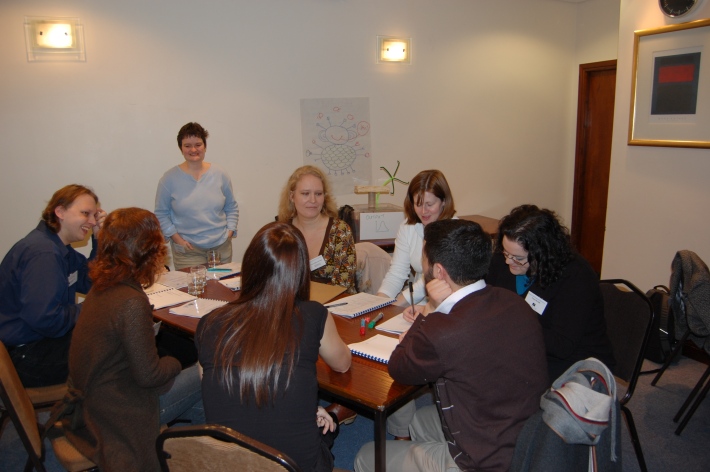This month, we are asking ‘Who supports the supporters?’
The Vitae Midlands Hub has an active network of Researcher Developers who meet twice a year to share practice, swap experiences and network with other staff from neighbouring universities.
“As a new member of Warwick’s research student development team, this was my first Vitae Hub meeting and I found it a really productive forum for ideas and conversation with colleagues in other institutions. The meeting struck me as particularly valuable as a sounding board for new initiatives and a site for openly sharing best practice”. Dr Emma Smith Research Student Skills Programme Co-ordinator, University of Warwick
Those who regularly attend the meetings have come to see them as part of “…an essential network on which those of us working with different institutions, have come to rely. They are the Researcher Developer Linked-In network, which allows us to share best practice, and manage our relationships across this complex and diverse sector.” Researcher Developer, Loughborough University
The Midlands Researcher Developer Forum is always open to new members and will next meet in May 2013.

If you would like an opportunity to meet other Researcher Developers before May why not come along to the Vitae South West and Wales Hub Annual Good Practice event at Bristol Zoo on Wednesday 27th February. Researcher Developers from across the South West, Wales and the Midlands will be given the opportunity to hear about new Vitae initiatives and network with like minded staff.
The keynote speaker at this year’s event is Professor Teresa Rees, Associate Director, Wales, Leadership Foundation who will be talking about leadership for researchers
Other topics include :
PechaKucha session
20 slides, 20 secs each slide – a short sharp information input!
· Preparing for the HR Excellence 2 year Review
· Digital Literacies for Researchers
· The Socially Innovative Researcher
· Researcher-led initiatives
· Sharing provision across postgraduate researchers and research staff
Workshops on
· Coaching and Mentoring
· Engaging researchers with parliamentary impact
· Achieving a step change in UK provision for Research Staff
· Supporting PGRs who teach including results from the latest NUS survey
· Equality and diversity
· RDF Planner and Implementation
· Vitae courses for researchers
Book your place on www.vitae.ac.uk/swwhubgp2013
Other ways that the Midlands Hub is supporting Researcher Developers is through our online community and mailing lists. If you would like join our basecamp group please contact midlandshub@vitae.ac.uk
A date for your diary Wednesday 4th and Thursday 5th September 2013 Vitae Researcher Development International Conference 2013: Realising the Potential of Researchers http://www.vitae.ac.uk/policy-practice/916-579801/Vitae-Researcher-Development-International-Conference-2013-Realising-the-Potential-of-Researchers.html











